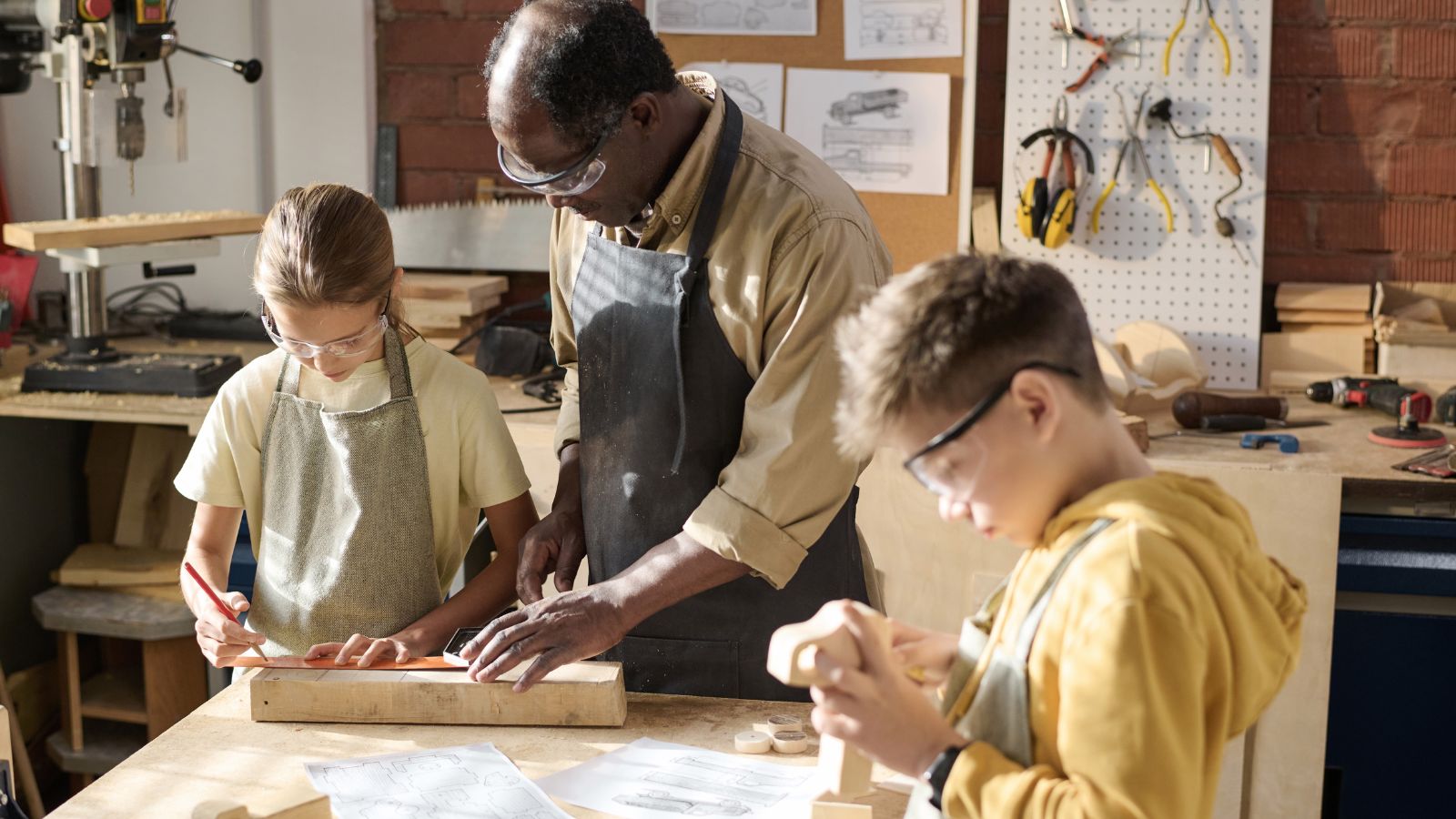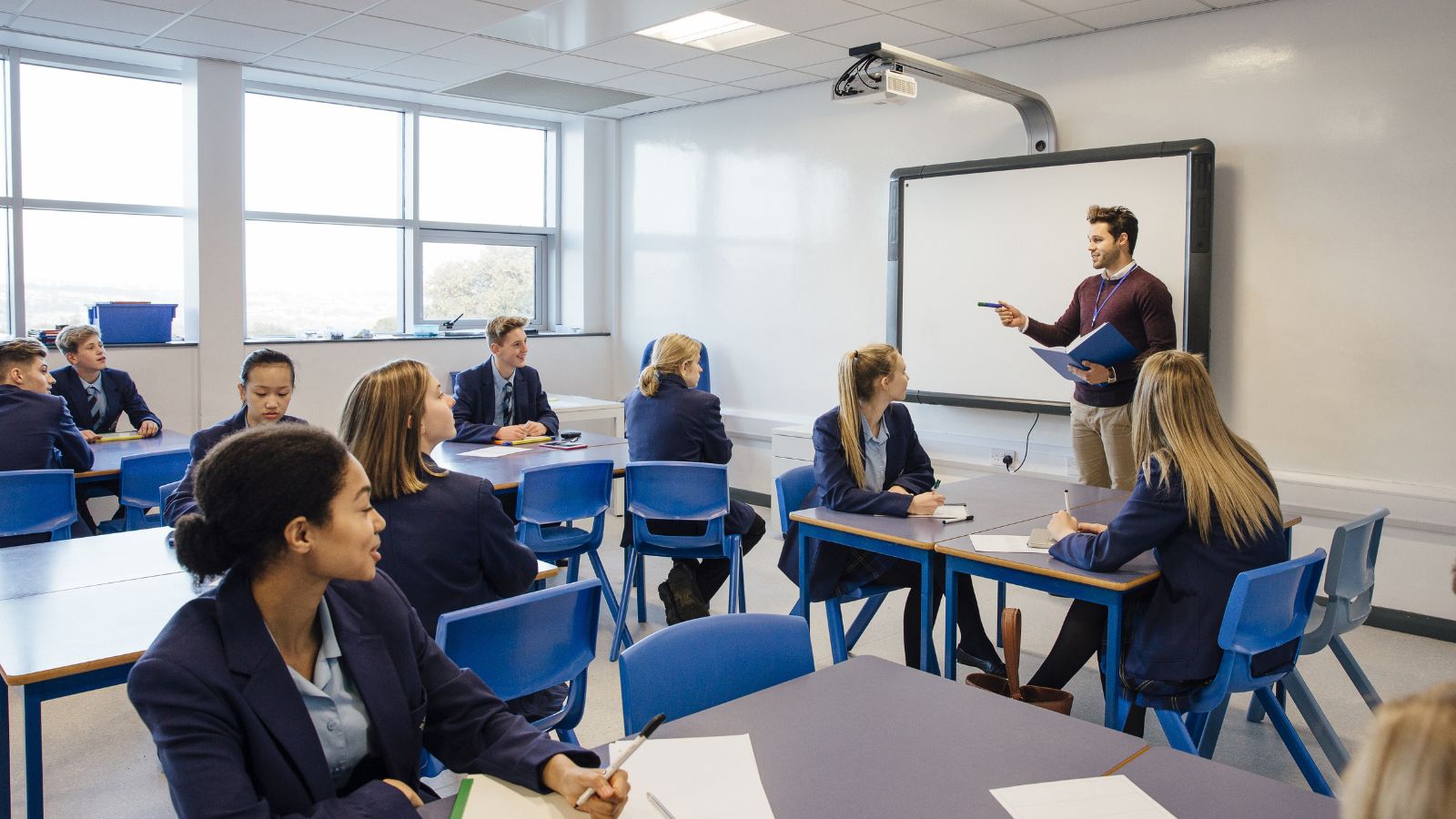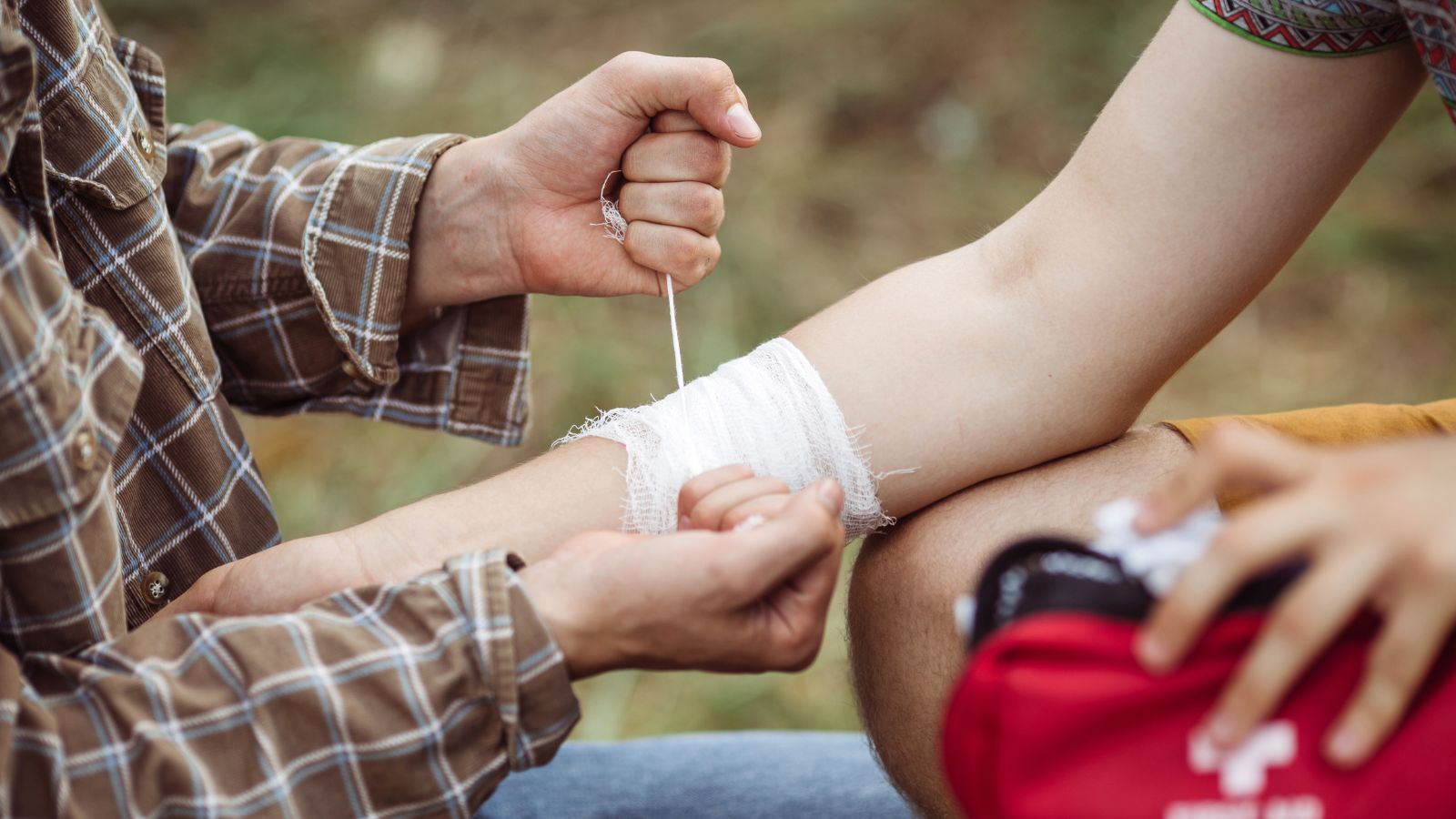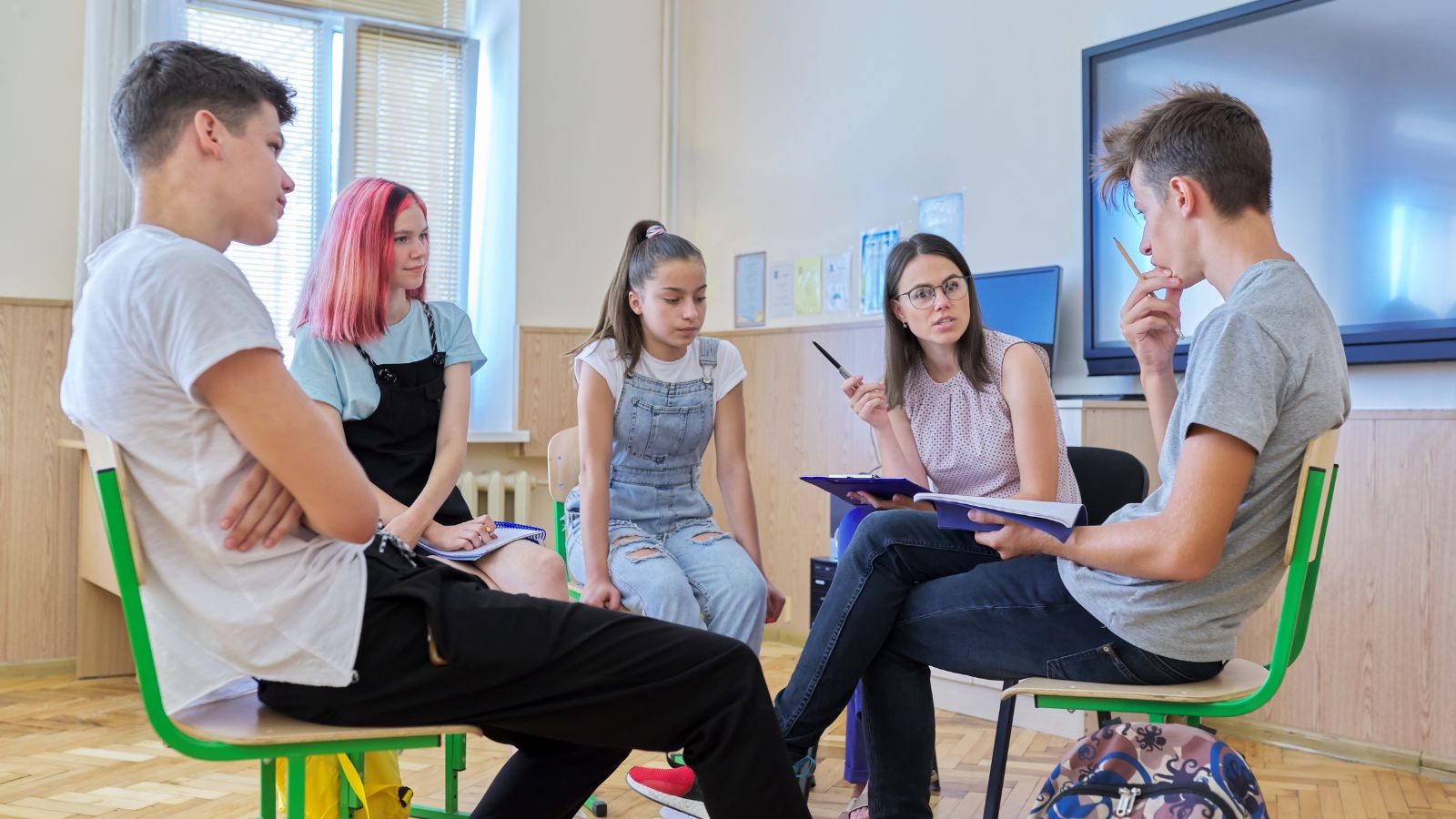Our children spend about six to seven hours a day in school and then come home after sports and extracurricular activities to do another two hours of homework, but what are schools really preparing kids for? These 18 skills for life are no longer part of the school curriculum but probably need to make a comeback.
Writing Letters and Addressing Envelopes

Thanks to email, the art of writing letters and addressing envelopes is becoming obsolete in schools and most people’s daily lives. Students used to be taught how to format letters and place addresses and stamps correctly; these tasks are now overlooked, leaving some younger people unable to mail items when needed.
Cursive Writing

Once a staple in elementary education, cursive writing has become something the older generations poke fun at the younger ones over. This change happened because of the shift toward typing and digital communication, which are deemed more relevant skills for the modern world. However, this leaves a gap in students’ ability to read historical documents or even personal notes from older generations.
Personal Finance Management

Despite its critical importance, personal finance management is not a standard part of many school curricula. Financial Sprout believes, “Personal finance isn’t part of the ACT or SAT – if it’s not tested it’s not taught.” However, skills like budgeting, saving, investing, and understanding credit and taxes are crucial for financial independence, and students shouldn’t enter adulthood without them.
Basic Carpentry and Home Repair

Practical skills such as carpentry and basic home repair are seldom found in modern educational programs, and it shows. Previously, shop classes provided hands-on experience with tools and materials, teaching students how to fix and make things themselves. Today’s youth are more likely to throw things out and buy new ones because they haven’t learned basic repair skills.
Analog Technology Usage

As digital devices dominate, knowledge of analog technology like film cameras, vinyl record players, and even analog clocks is fading. Schools no longer see the relevance of outdated teaching technologies, yet this leaves a gap in understanding older technologies that are still in use, namely telling time on a traditional clock.
Time Management

Kids today have jam-packed schedules with school, sports, extracurriculars, and family obligations. Time management is a critical skill for success in both academic and personal life, yet it is rarely addressed directly in school curricula. The Department of Education admits, “It can lead to improved success, however, this is a skill that students have to learn and practice.” Students are expected to manage their assignments and schedules without formal education on effective strategies for doing so.
Interpersonal Communication

Have you noticed how fewer teens seem to actually talk to each other because they’re busy looking at their phones? They feel social because they’re communicating, but only digitally; however, communicating effectively face-to-face, reading non-verbal cues, and engaging in active listening are essential to living life outside the screen. Schools have leaned completely into digital learning, especially after COVID-19 schooling, and have dropped the ball on interpersonal communication skills.
Critical Thinking Outside of Academic Contexts

Carnegie Mellon University states, “Students lack an important component of critical thinking: how to select and evaluate resources.” Schools focus on critical thinking in relation to academic subjects but often fail to apply it to everyday life situations. Students may not learn how to critically assess information they encounter in the media or online, which leads many to believe everything they read from a source they have chosen as infallible.
Nutrition and Cooking

“When asked to rate their confidence in the kitchen, only 33% of Gen Z consider themselves skilled cooks, compared to 47% of Millennials,” according to Home Run Inn Pizzeria. This could be because basic nutrition and cooking classes have been scaled back or eliminated in many schools, leaving young adults relegated to delivery apps unless they were lucky and their parents taught them to cook in their limited spare time.
Basic Car Maintenance

Skills like changing a tire, checking oil levels, or even understanding the basic workings of a car are rarely taught in schools today. These practical skills used to be a part of high school education and can save students money and improve safety, but they are often left to students to learn from family or specialized courses.
Job Interview Preparation

While career advice is given, specific training on how to handle a job interview, including how to dress, what questions to expect, and how to conduct oneself, is often missing. APAC recruitment partner Amanda Zhou talks about interviewing and developing soft skills on LinkedIn, saying, “In academic settings, we are often encouraged to focus on technical skills and in-depth knowledge of our field. While hard skills are certainly important, it’s the soft skills that often set successful individuals apart from the rest.”
Understanding and Managing Emotions

“Research has shown that our success in life is 80% EQ and only 20% IQ. And the best part is that emotional intelligence is a skill you can build,” according to Calm. However, schools neglect teaching or prioritizing emotional intelligence, including managing and understanding one’s emotions and empathizing with others, mainly because it’s not going to be tested later on.
Basic First Aid

Knowing how to react in a medical emergency is invaluable, yet it is typically only covered if students pursue specific health or emergency courses. Even teaching the simplest tasks could help students in dangerous and stressful situations and possibly even save their lives, but it is not deemed as necessary as algebra.
Sewing and Clothing Repair

Do you know how to sew a button on a shirt or repair a hem if it comes undone? Sewing and basic clothing repair are skills that can save money and extend the life of garments, but they seem to have been lost to our grandparents’ generation. Today, people just turn to fast fashion and replace clothing with even the most minor tear or damage.
Gardening

Getting back to the ground and the soil could solve a lot of problems in the world, but instead, schools keep kids indoors to focus on technology. Understanding how to grow food and care for plants is valuable for sustainability and self-sufficiency, not to mention stress relief.
Civic Responsibility and Engagement

Understanding one’s rights and responsibilities as a citizen and how to engage in the democratic process is not emphasized in many educational systems. To create active, involved, and informed adults in the future, the basics of participating in our society need to be brought back into schools.
Stress Management

Meditation classes and other forms of stress management or even therapy could help students face the high pressures of adolescence. With the rise in school shootings and suicide by minors, schools should be reassessing and adding stress management into the daily lives of students.
Local Law and Regulations

Understanding fundamental legal rights and local laws is vital for personal and professional life. Knowledge of the law can prevent legal issues and empower individuals to advocate for themselves and others.
Up Next: 20 Personal Things You Should Never Share With Others

Building meaningful connections with others requires a certain level of transparency and trust, but that doesn’t mean you have to tell your friends and family members everything! Some aspects of our lives are too personal, incriminating, or risky to share. This article explores 20 aspects of your personal life that you should always keep confidential.
20 Personal Things You Should Never Share With Others
18 Things Everyone Forgets to Include in Their Will—But Shouldn’t

Wills and estate plans are essential ways to ensure what will happen to your belongings and property when you die or are incapacitated. However, people often forget to include important information in their wills before it’s too late, complicating matters for their descendants. Here are the 18 common things people forget to include in their will.
18 Things Everyone Forgets to Include in Their Will—But Shouldn’t
18 Items at Walmart that Aren’t Worth Your Hard-Earned Money

For many of us, Walmart is the go-to superstore. Whether we need groceries, clothing, or technology, Walmart is a one-stop shop for everything you would need. However, there are some Walmart products you should avoid at all costs, such as the following 18 examples.
18 ITEMS AT WALMART THAT AREN’T WORTH YOUR HARD-EARNED MONEY
